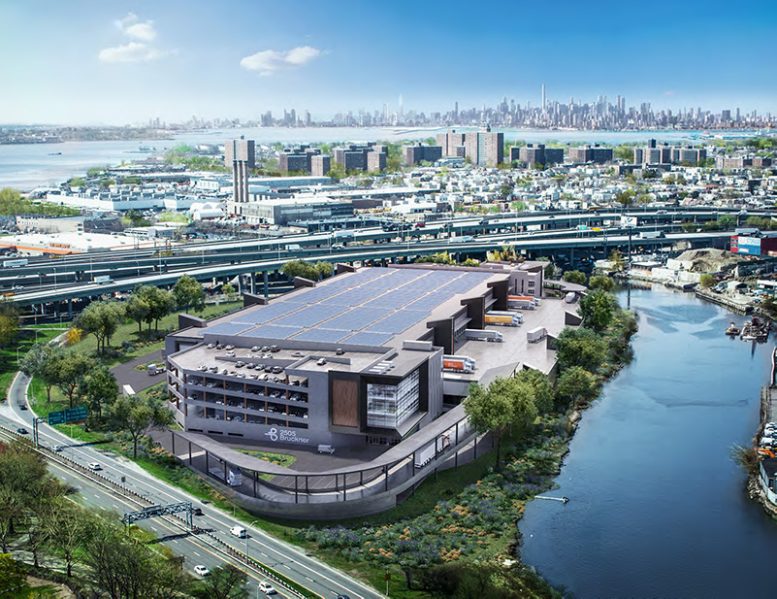There are industrial properties, including warehouses, factories, and distribution centers. Warehouses are buildings where goods are stored, often for long periods. They may keep raw materials, finished products, or both. Factories are buildings where goods are manufactured or processed.
They may be used to produce a wide variety of goods, from food and beverages to clothing and electronics. Distribution centers are buildings where goods are received, stored, and shipped to retailers or other businesses. These buildings are often located near major transportation hubs, such as airports or highways, to facilitate the efficient distribution of goods. Other common industrial properties include research and development facilities and light and heavy industrial buildings. Read on to learn more about industrial real estate properties.
How to Evaluate Industrial Commercial Real Estate
When evaluating industrial and commercial real estate, there are several key factors to consider. Some of the most important include the property’s location, the building’s condition and any associated equipment, the property’s size, and the area’s zoning regulations.
The property’s location is crucial because it can affect the ease with which goods can be transported to and from the property and the availability of labor and other resources. For example, a property located near a major highway or airport may be more desirable than one more isolated. A city like Dallas, Texas, is a prime example of a perfect city to invest in industrial real estate because of its proximity to large airports and distribution networks.
The condition of the building and any associated equipment is also essential, as this can affect the cost of maintaining the property and the efficiency with which it can be used. A well-maintained property with modern equipment may be more desirable than one that needs repairs or upgrades.
The size of the property is also a key factor to consider, as it will determine the amount of space available for storage, manufacturing, or other activities. A property that is too small may not be able to accommodate the needs of the business, while a property that is too large may be more expensive to maintain.
Finally, it is essential to consider the zoning regulations in the area where the property is located. These regulations may dictate what activities are allowed on the property, the hours of operation, and other restrictions. Therefore, a property that complies with local zoning regulations may be more desirable than one that is not.
When evaluating industrial and commercial real estate, it is essential to consider all these factors carefully to determine the best property for your business needs.
How to Buy Industrial Commercial Real Estate
There are several steps involved in buying industrial and commercial real estate. The first step is to determine your business’s needs and the type of property that will best meet those needs.
This will involve considering factors such as the location of the property, the size of the property, and the zoning regulations in the area.
Once you have identified a property that meets your needs, the next step is to conduct due diligence. This will typically involve hiring a qualified inspector to assess the condition of the building and any associated equipment, as well as reviewing any available documentation on the property, such as zoning regulations and building permits.
Once you have completed your due diligence, the next step is to negotiate the terms of the sale with the seller. This will typically involve agreeing on a purchase price and any contingencies, such as the completion of repairs or upgrades to the property.
Finally, once the terms of the sale have been agreed upon, the next step is securing the property’s financing. This may involve obtaining a commercial mortgage from a bank or financial institution. Once the funding has been confirmed, the sale can be completed and the property transferred to the new owner.
Buying industrial and commercial real estate can be complex, so working with a qualified real estate agent or attorney is essential to ensure the process goes smoothly.
How to Sell Industrial Commercial Real Estate
The first step is determining the industrial property’s value. This can be done by hiring a qualified appraiser to assess the property or by comparing the property to similar properties that have recently sold in the area. Once the property’s value has been determined, the next step is to prepare the property for sale. This may involve repairs or upgrades and cleaning and staging the property to attract potential buyers.
Once the property is ready for sale, the next step is to market the property to potential buyers. This may involve advertising the property in real estate listings or through other channels, such as social media or email marketing. It may also include hosting open houses or other events to showcase the property to potential buyers. You can list your property for sale on online marketplaces. For example, you can see industrial properties in Houston, Texas.
Once interested buyers have been identified, the next step is to negotiate the terms of the sale. This will typically involve agreeing on a sale price and any contingencies, such as the completion of repairs or upgrades to the property.
Once the terms of the sale have been agreed upon, the next step is to complete the sale. This will typically involve transferring the ownership of the property from the seller to the buyer and may also include transferring any associated equipment or other assets. Again, the sale can be completed with a real estate attorney or other qualified professional.
Overall, selling industrial commercial real estate can be complex, so working with a qualified real estate agent or attorney is essential to ensure the process goes smoothly.

